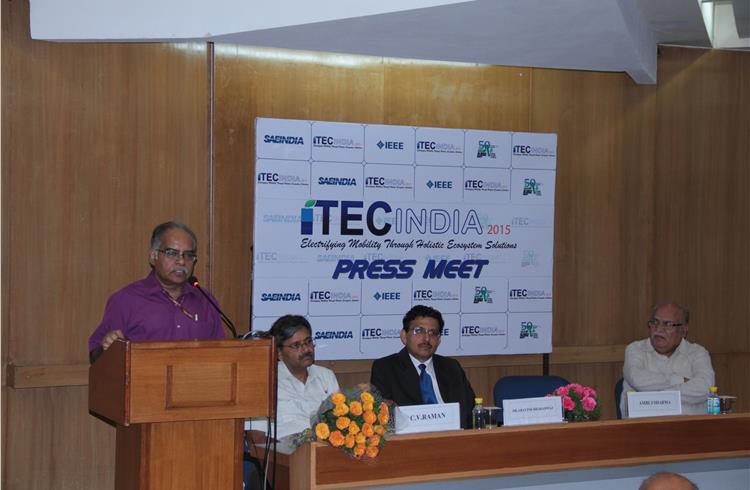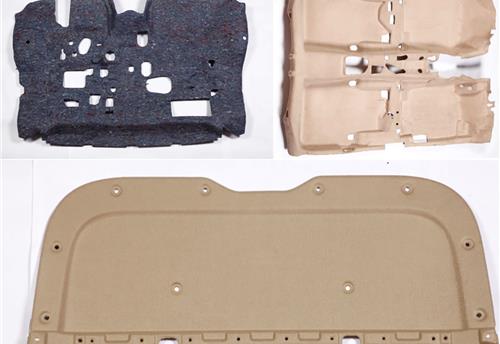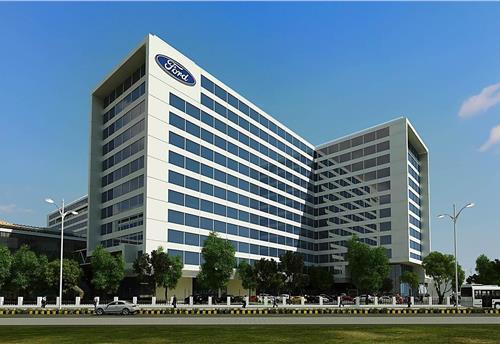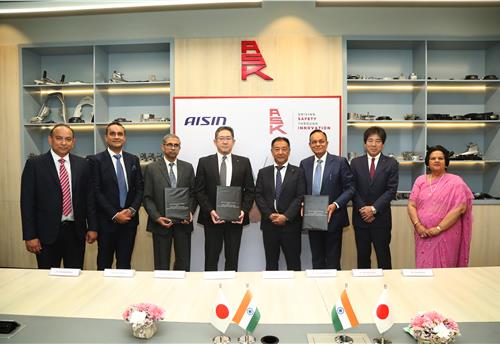New steps around the corner to boost EV and hybrid industry in India
Exactly three months after the government launched the FAME India (Faster Adoption and Manufacturing of Hybrid and Electric Vehicles) scheme on April 1, 2015, the green vehicle movement is set to get new charge.
Exactly three months after the government launched the FAME India (Faster Adoption and Manufacturing of Hybrid and Electric Vehicles) scheme on April 1, 2015, the green vehicle movement in the country is set to get new charge.
Speaking at a media interaction to announce the holding of the first International Transportation Electrification Conference (ITEC) India 2015 to be held in Chennai from August 27-29, Ambuj Sharma, Additional Secretary of the Ministry of Heavy Industries, said: “Some proposals are under consideration and in the next fortnight some of them are likely to be sanctioned. Recently we have approved 25 hybrid buses for Mumbai Metropolitan Regional Development Authority for the Bandra Kurla Complex, and 5 hybrid buses for the Navi Mumbai Transport department. We are also considering proposals from Bangalore, of which one pilot has been approved for 100 e-cars to be used as taxis. Another 100 cars will be purchased by the transport department in Bangalore.”
“We hope to launch a couple of pilot projects suitable for Chennai at ITEC 2015 to provide last-mile connectivity,” he added. He envisages both pull and push-encompassing incentives and technology enabling environment to promote this fledgling market to grow further.
ITEC India, which is organised by the Society of Automotive Engineers India and the Institute of Electrical and Electronics Engineers Industry Applications Society in sync with the government of India’s NEMMP 2020, will provide a platform for knowledge sharing and networking to facilitate India’s transition from conventional to electrified vehicles.
In line with the FAME India programme, the Ministry of Heavy Industries and Public Enterprises has zeroed down on some hurdles – both technological and ecosystem related – to give a new charge to this green programme. What is critical to drive this is the right type of technology and R&D. At present, India has manufacturing capacity of half-a-million electric two-wheelers but very few EVs in other segments. Hence the government’s proposed focus on indigenising technology of xEVS and electric drivetrain (batteries, motors and controllers) and developing the necessary technologies in collaboration with academia and industry.
Ambuj Sharma said most developed markets offer subsidies for plug-in hybrids or pure EVs but very few give subsidies for general hybrids and those are very low scale or for a short duration. While FAME India scheme covers all vehicle segments from two-wheelers to buses, trucks and lorries have been left out of its ambit. “But as the electric drivetrain becomes more economic, some solutions may come for that segment also,” he added.
Meanwhile, the government has incentivised the upfront acquisition cost to promote faster adoption and manufacturing of xEVs in India. Initially, it has approved a two-year scheme till 2017 that marks the end of the current five-year plan. By end-2017, a call to extend it over the next plan period would be taken. Rs 795 crore has been allotted for this two-year period to give a fillip to xEVs with demand incentives linked to the efficiency of the vehicle – pure EVs, being more efficient, get the highest incentive while mild hybrids the lowest. The in-between plug-in hybrids and strong hybrids receive varying degrees of incentives.
Meanwhile, it is understood that the Ministry is in talks with airport authorities to equip them with e-LCVs for tarmac operations or logistic movement. It is also working with the postal department to drive this scheme.
Key to EV industry growth is charging infrastructure, which is sorely lacking in the country. The Ministry is working with state governments to enable a fast rollout of EV charging facilities, particularly in urban centres and metro cities. The government is now looking to set up such infrastructure, at its own cost, over the first 1-2 years. Over the next couple of months, the government will float enquiries. Following bids, a pilot will be selected for developing both fast and slow chargers. This infrastructure will be linked to the grid or solar power charging infrastructure. The government is also looking to provide fast charging for e-two-wheelers.
Using existing fuel stations to set up charging infrastructure in the long run is also being explored. The Heavy Industries Ministry has had meetings with the concerned stakeholders and an MoU is soon to be inked with the petroleum companies.
Under the FAME scheme, incentives for purchase of vehicles are provided based on technology but there is no direct incentive to the manufacturer.
Sharma said the Indian auto industry adopted advanced and modern technology at a fast pace over the past 10-15 years for its IC vehicles adapting to the most modern features incorporated by OEMs in India. The same applies for xEVs as component makers will need to adopt modern technology. Most two-wheelers and three-wheelers are powered by lead acid or advanced lead acid batteries made in India. Electric four-wheelers and new-generation two-wheelers would require advanced batteries like lithium ion. “We are in discussions with battery manufacturers like Amara Raja who have given us an understanding that they would be able to manufacture within India from technologies that they will outsource from overseas initially or for which they will form collaborative arrangements. We are jointly working with battery manufacturers to develop technology in-house and have already initiated a process to set up a centre of excellence for batteries,” said Sharma. A joint industry and government partnership is working to indigenise lithium ion batteries for Indian vehicles, from two-wheelers to buses.
Technical institutes like IITs, IISC of Bangalore and the University of Pondicherry, which are undertaking advanced work in batteries, have been brought together to work on individual components of battery technology. This would help future production of not only lithium ion batteries but also carbon foam and advanced lead acid batteries.
CV Raman, executive director (engineering), Maruti Suzuki India, does not foresee any technical limitations to development of lithium ion batteries in India. But he feels this will require incentivising adoption as more players enter the fray. “The limitation is affordability and how we bring down the cost. Already it has come down from $1,100 KW per hour to $500 internationally and as technology progresses it will definitely come down further as more vehicles adopt it. We are going to see this technology being used in India,” added Raman.
For the moment though, the Ministry is to develop an electric two-wheeler kit (Version 1) in the next six months. This would comprise an electric drivetrain – battery, motor and controller ideally suited for an Indian two-wheeler. At present, assembled vehicles use parts imported from China, Taiwan and Korea. The aim would be to develop a better performing kit that is 10 percent cheaper and 10 percent more efficient. There would be upgrade annually and by the year 2020, Version 3 of the kit would be introduced.
E-autos, which are different from e-rickshaws, are also slated to be rolled out in two months.
Till the year 2020, it is estimated that 20 percent pure electrics will source power from the national power grid and consume 700-800 MW of power. The present power capacity stands at 250,000 MW. By 2020, this is pegged to be 400,000 MW which means only a small percentage would be used for charging xEVs.
The government is also beefing up plans to launch a National Solar Mission to target 100,000 MW by 2022. It is also working on new technology projects that will harness a solar charging infrastructure.
RELATED ARTICLES
Uniproducts India targets 15% growth till FY2027, eyes new EV OEMs for NVH parts
The Noida-headquartered company, which is a leading manufacturer of roof liners, floor carpets, sound insulation materia...
Ford to build more EV software capability at Chennai tech hub
Ford Business Solutions India, which currently employs 12,000 personnel set to add 3,000 more; Ford, which is known to b...
ASK Automotive to set up JV with Aisin to sell aftermarket parts for cars
Ask Automotive will have 51% of the equity of the joint venture to be set up with Aisin Asia (Thailand) Company and Aisi...





 29 Jun 2015
29 Jun 2015
 4035 Views
4035 Views





 Autocar Pro News Desk
Autocar Pro News Desk




